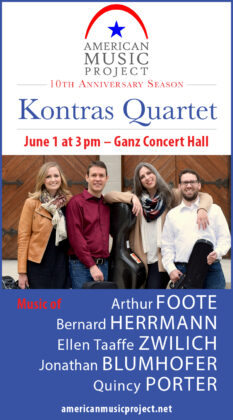Baroque Band books an exquisite “Grand Tour”
With college students everywhere getting ready for that annual rite of passage known as spring break, Baroque Band is offering an 18th-century aural take on what young British adults of means would usually do after university: take a “Grand Tour” of the sights and sounds of the continent.
After crossing the channel and heading through France, the first major cultural center visited would be Paris, where music of Jean-Baptiste Lully held sway. An Italian by birth, Lully was brought to France as a youth in the service of an aristocrat and ended up in the service of Louis XIX. He sought to develop a distinctly French musical identity that suited the unique properties of the French language and that gave preference to the French penchant for the dance.
Musical excerpts from Lully’s masterpiece Armide — his 1686 opera about the sorceress who seduced the Crusader Renaud — would still have been commonly performed, and Baroque Band presented four movements from its Suite with considerable flourish Tuesday night at Symphony Center.
Of particular interest was the climactic Passacaille, often played in a dirge-like manner but here rendered as a lively ostinato used as a springboard for spotlighting intersecting violins with dramatic tension built up to a spirited climax. Given that Lully himself stabbed himself with a cane-like forerunner of the modern baton and later died from the resulting infection, it was a relief to see Baroque Band director Garry Clarke making all of his conducting gestures with hands alone.
Rome was represented by Arcangelo Corelli, that Italian master of the concerto grosso form who set the course of all subsequent string performance. His Concerto grosso Op. 6, No. 7, is a vibrant and linear work of immense contrast and color that represents a different sound world from Paris: the French composure and control is here traded in for Italian passion and spontaneity with Baroque Band making the switch of styles admirably.
A stop in Hamburg featured music of Georg Philip Telemann, the most popular and successful German composer of his day given that Handel had moved to England and Bach remained largely unknown, slaving away at a thankless position in Leipzig that had originally been offered to Telemann, who had turned it down.
La Putain [“The Whore”] is an Ouverture Suite of dances named for its use of a quotation from a song about a working girl. No doubt running into a spirited piece of music like this that combined the best of both the French and Italian styles under such an evocative moniker could serve as a reminder of the non-cultural diversions awaiting young men of means as they traversed the continent.
Amsterdam meant an encounter with the Baroque composer that most of us have heard but few actually know: Unico Wilhelm van Wassenaer (1692-1766), who wrote one of the pieces attributed to Pergolesi that Stravinsky would go on to use in Pulcinella. The Concerto Armonico No. 4 is in the Italian style and climaxes with pedal points topped off by decorative, interweaving violin lines that unfortunately were marred by intonation issues.
A return home to England featured stops in London and Newcastle upon Tyne where works of Francesco Geminiani (1687-1762) and Charles Avison (1709-1770) could respectively be encountered.
Geminiani’s Concerto grosso Op. 5, No. 11 (after Corelli) is exactly what the title might suggest: an inferior attempt to evoke the great Italian master but without his imagination or his sense of spontaneity.
Avison’s Concerto No. 3 from Six Concertos in Seven Parts, Op. 2 consisted mostly of effects and sequences — Baroque tricks of the trade, as it were — and was also a victim of those sudden mouse squeaks that tended to overwhelm some of its key moments of transparent texture.
The program will be repeated at 7:30 p.m. Saturday at Hyde Park Union Church, 5600 S. Woodlawn, Chicago, and at 7:30 p.m. March 12 at the Music Institute of Chicago, 1490 Chicago Ave., Evanston; http://baroqueband.org; (312) 235-2368.
Posted in Performances




